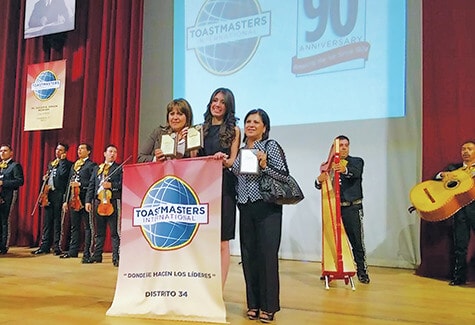Holiday Gift Giving Around the World

Respect for cultural differences is a gift worth giving.
By Dean Foster
From the Toastmaster magazine December 2015.
Gift giving can be a little tricky when the recipients are international colleagues. Cultural differences can turn a terrific gift at home into a terrible no-no abroad. Since this is the season for gift-giving, here are some important cross cultural tips to consider:
Style matters as much as substance.
Sometimes the wrapping is as important as the gift. Color, style and design carry different meanings in different countries. For example, in Asia the colors white and black are often associated with funerals, while red means health and happiness, and gold signifies wealth and success. A gift presented in a white box is not appreciated in East Asia. Red or gold wrapping is much preferred, and in East Asia, no gift, no matter how small, should ever be presented unwrapped.
Symbolism is important.
For example, clocks are not good gifts for your Chinese associates, no matter if they are in China, Hong Kong, Singapore, Taiwan or San Francisco. The word in Mandarin for clock is very similar to the word for death.
Avoid fine linen handkerchiefs in Korea.
Handkerchiefs, even of the finest quality, are symbols of sadness. In all Asian cultures, avoid cutlery as well (such as penknives with corporate logos), for they represent the cutting of a relationship. In Korea, avoid pens with red ink: very bad luck! Additionally, the number four in Chinese culture is associated with death, so avoid giving gift items in a set of four.
Consider the country’s traditions.
Leather goods are not appropriate in India, where Hindu traditions hold the cow sacred. So avoid giving leather picture frames and attaché cases.
Fine brandy or wine, while appreciated in many cultures, are generally a no-no in Muslim countries since Islam shuns alcohol. On the other hand, many Japanese people savor brandy and Scotch, so a quality bottle of either makes a fine holiday gift in Japan.
In Japan, citrus fruits are highly prized and very expensive.
A box of those well-packaged fancy fruits from Florida or California is a terrific idea: Not only is it a special treat, but it can usually be parceled out to many, and in Japan, there are usually many on the team. It is a good way to recognize the efforts of the whole office.
"Generally, a gift that reflects your home country, and is difficult to find in the recipient’s country, is much appreciated."
A wonderful gift to your Muslim associates (any follower of Islam, from the Arab Muslim world all the way to Malaysia and Indonesia) would be a fine silver compass: No matter where in the world your Muslim associates may be, they can always locate Mecca and perform their daily prayers.
And finally, avoid sending coals to Newcastle: No wines to France or Italy, no beers to Germany, no chocolates to Belgium, etc. How you present the gift is also important. In Asia, for example, one does not typically open the gift in front of the giver. And in some countries, gifts should reflect the status of the recipient. In Europe and Latin America, if you are presenting flowers as a gift (perfect for a dinner invitation to someone’s home), be sure to unwrap the flowers before presenting them to the hostess. Additionally, if you send flowers in Europe, try to keep them odd numbered, and remember, red roses are far too personal. And avoid chrysanthemums: They are used for funerals.
Generally, a gift that reflects your home country, and is difficult to find in the recipient’s country, is much appreciated. And sending the culturally appropriate gift will ensure a positive memory that will endure long after the gift is gone.
Based on an article published in internationalHRforum.com December 20, 2011.
For more articles from the December issue, visit www.toastmasters.org/Magazine/Issues.
FEEDBACK